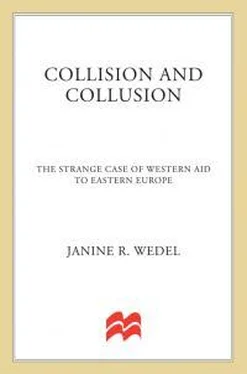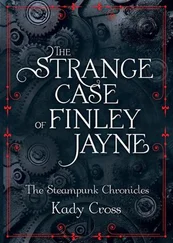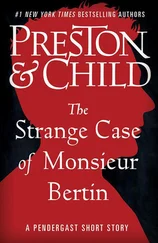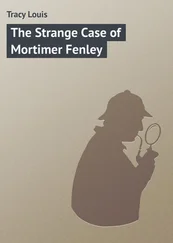In fact, information about who was who was the most valuable—and scarcest—commodity on the East-West circuit, especially during the Triumphalist phase. Westerners were entering a previously semiclosed world, usually not knowing much, if anything, of its sophisticated legacy of reputations, cliques, and intrigue. Representatives of foundations, corporations, and government agencies typically toured the region with lists of up to a dozen or so names of the “most important people” for each country. Names often were obtained from other Westerners and by virtue of Easterners’ visibility in the West. The lists became self-fulfilling prophecies; many of those whose names appeared on them in time received funding from multiple sources.
Thus, although a multitude of Western programs offered travel, training, and scholarship opportunities, there were only a few channels of selection for them. There was much to be done, but seemingly few to do it: Only a few highly skilled Easterners were adept at working in the new environment. The same groups and individuals, who tended to travel in the same circles as each other, took advantage of multiple opportunities.
Easterners, too, often had little information about Western personalities and organizations, but were quick studies in maneuvering the situation to their advantage. Many educated and astute young adults from intelligentsia backgrounds carved out a triad of business, foundation, and scholarly activities. Western partnerships facilitated all of these activities, and so such Easterners also served as consultants, brokers, and partners, and depended more on Western contacts and opportunities than on indigenous ones. Previously engaged in traditional academic careers in philosophy, philology, and physics that commanded respect, but little income, they now were involved in both the old activities that afforded the intelligentsia prestige and the new ones that offered money. Many members of Poland’s bright young intelligentsia split their energies between lucrative business activities and sociology (a catch-all field under which critical discussion had been possible in communist Poland and Hungary and in which many who assumed important positions in postcommunist Central Europe had been trained). Many assistant professors of sociology and psychology set up businesses and/or foundations “on the side,” all the while carrying out minimal duties at the university and collecting meager state salaries.
One such person was Grzegorz “Larry” Lindenberg, a Ph.D. sociologist in his early 30s. Lindenberg was short, slight, friendly, and, in contrast to his Western counterparts, casually dressed and often smiling behind a bushy beard. Poor after their release from martial-law internment, he and a few of his ex-cellmates had in time begun to trade in computers and electronic equipment by traveling from Singapore to Bratislava to Warsaw and Kiev. In addition, Lindenberg became the managing editor of the newly created Gazeta Wyborcza, which quickly became the most widely circulated newspaper in Poland. Using his access throughout Poland—starting with the Ministries of Industry and Finance—Lindenberg helped some Western investors navigate the country’s complicated bureaucratic and political structures. He also played a role in promoting Harvard economist Jeffrey Sachs when Sachs first appeared in Poland in the late 1980s.
Called upon by their countrymen to be economic and political players and to help their country get back on its feet, new managers such as Lindenberg became windows to the West at a crucial time and served as invaluable assets to Western investors, attorneys, and entrepreneurial academics. As these businessmen received scores of calls and offers from Westerners, their visibility and opportunities quickly compounded. Myriad such contacts blossomed for mutual advantage, as well as to facilitate efforts that would have wider influence.
EARLY EASTERN GATEKEEPERS
Before the revolutions of 1989, important precedents for giving and receiving had been set both by donors and by Central European recipients. Individuals with name recognition in the West—often dissidents—tended to be selected as the beneficiaries of Western help. In their own social contexts, they were “more equal than others.” Some on-the-scene observers contended that endowing them with resources may have reinforced existing social hierarchies. In an article entitled “The Opposition and Money,” a known activist writing under a pseudonym explained the role of Western money in supporting underground operations and the very survival of the Polish Opposition in the late 1970s and 1980s:
It is worthwhile to remember that those who carry out such lofty and noble ends are still human beings like the rest of us, who need money to live.… Payments for articles, books, reviews, and sometimes interviews published in the West provided Oppositionists with much-needed income. Some received awards; others were granted lucrative Western scholarships or fellowships. Activists had many opportunities to earn money at home by working for independent papers and publishing houses (that paid in złoty) or working for Western correspondents (for dollars) as translators or fixers.… Some Oppositionists were more equal than others. Well-known activists had many more opportunities to earn money than their less famous colleagues. Such genuinely eminent figures … could live comfortably from selling their views in the form of paid interviews with foreign press agencies. Indeed, such people had many more offers than they could accept. Western journalists worked for Western editors, who had only a vague idea about the situation in Poland, and thus always demanded the same names. Such Oppositionists often had to turn down intrusive Western correspondents.
Moreover, in such necessarily clandestine circumstances, there was a natural tendency to blur the lines between what was one’s own and what belonged to the group, and thus was meant for wider benefit.
The distinction between monies and goods designated for individual and for collective use was never clear.… Exact bookkeeping was often deemed impossible for security reasons, and the activists’ own money easily got mixed with the “company” money.… It was also rather difficult at times to determine whether an activist was honored with some prize from abroad for his personal, individual achievements or on behalf of the group and the cause he represented. Did, for example, the Nobel Peace Prize simply honor the undoubtedly heroic Lech Wałęsa or also millions of less famous, more deprived, more easily suppressed workers across a defiant nation? In some cases a contributor earmarked the money for a common, opposition purpose, in others he did not. One may presume that the recipient kept some part of it for himself.25
However different the circumstances, the recipients that donors selected and what these recipients did with the money in the thaw years of the 1980s set patterns that persisted into the 1990s. To a large degree, assistance under the rubric of building democracy, civil society, and independent institutions was, especially in the years immediately after 1989, a continuation of the status quo; that is, donors funded the same individuals and groups they had previously supported. For example, through FTUI, NED continued its support, begun in 1984, to Solidarity with a grant of $355,000 in fiscal year 1989 to assist Solidarity activities both in and outside Poland. Through the International Rescue Committee in New York, NED renewed funding, begun in 1987, to Solidarity with a grant of $1 million in fiscal year 1989 to maintain a social services fund to assist workers and their families.26 Through the Czechoslovak Society of Arts and Sciences, NED carried on funding that in part supported “independent scholars and writers in Czechoslovakia.”27 NED president Carl Gershman described the endowment’s targets:
Читать дальше












